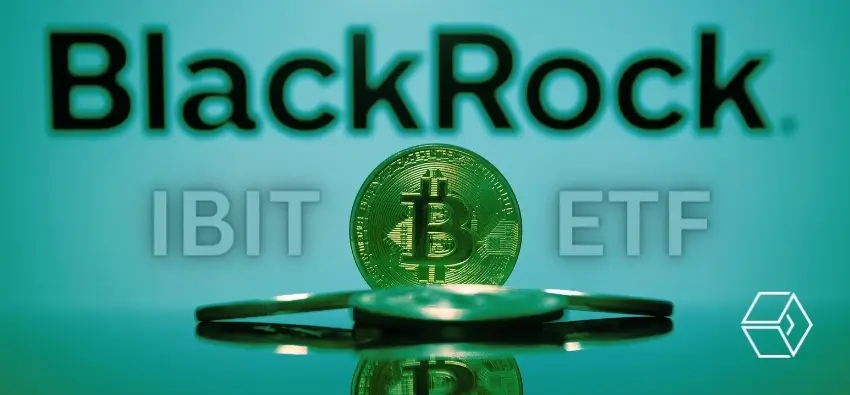
The Bitcoin market has been experiencing a remarkable boom, catalyzed partly by the mounting interest from institutional investors. As early as January, the Bitcoin market has seen an impressive surge of about fifty percent, over just five months for BlackRock’s IBIT ETF, underscoring Bitcoin’s burgeoning credibility and mainstream acceptance within traditional financial spheres. Now, It’s interesting to see what lies ahead for the Bitcoin market and whether its role as a decentralized currency continues to shape the crypto market.
Bitcoin’s boom in 2024
Bitcoin began 2024 with a bang, reaching an all-time high above $73,500 on March 14th, though it subsequently retreated to around $63,000 on April 29th. One can attribute this initial surge in part to the approval of spot Bitcoin exchange-traded funds on January 10th of this year. This was crucial to help pick up Bitcoin’s momentum as it has enabled a more diverse pool of investors to easily access the crypto market through traditional investment avenues.
No longer must average traders fret over maintaining personal crypto wallets, navigating convoluted digital exchange interfaces, or comprehending cryptic wallet addresses and private keys—the introduction of ETFs simplified the process, rendering Bitcoin investment more approachable for routine market participants.
Many industry onlookers anticipate the original cryptocurrency will experience an ensuing bull cycle, prompted by advancing technological innovations, swelling adoption across both developing and developed nations, and unpredictable global economic and geopolitical developments which could bolster Bitcoin’s safe-haven reputation. However, what became a catalyst for Bitcoin’s bull run is the blessings from the world’s largest asset overseer, BlackRock.
Looking ahead, Bitcoin’s future appears bright, characterized by heightened institutional involvement, evolving policy frameworks, and fluctuating dynamics within the market that could further solidify its position as a digital titan. Alongside shorter sentences, some lengthy and convoluted constructions demonstrate humankind’s innate complexity, unlike the uniformity typical of algorithmic utterances.
Bitcoin’s underlying technology is the Lightning Network which has been imminent in improving scalability and transactional velocity, edging Bitcoin closer towards ubiquity in daily economic exchanges. Simultaneously, macroeconomic tides and sentimental undercurrents steer the ship of speculative supply and demand. BlackRock’s indexing fund surging fifty percent singles out the growing confidence in Bitcoin’s long term worth.
As heavyweights like BlackRock wade in, the market finds firmer footing and smoother sailing. Nonetheless, complex currents carried by global affairs and next-gen developments still cause occasional waves, as it should in an open market. How far and wide Bitcoin spreads its wings relies on skillfully surfing both technology empowering its protocol and big giants shaping its value.
Is Decentralization nearing the end?
Regulation and centralized management are inevitable with institutional participation. This conflicts with Bitcoin’s original vision as a decentralized, peer-to-peer monetary platform set by Satoshi Nakamoto. With increase in exposure to traditional finance Bitcoin is likely to enter regulatory scrutiny and centralized authority.
As these institutions increasingly hold large amounts of Bitcoin, they will increasingly be able to affect market prices and policies in a way that could undermine the decentralized nature of the currency. It is a dichotomy, a polar opposite to the decentralized, democratic ethos that Bitcoin et al arguably were meant to define.
Although institutional investment would add legitimacy and stability to the market, it would also inevitably lead to additional centralization. This is almost a double-edged sword, a conundrum which is difficult to end.
Since Bitcoin makes up about 45%-50% of the total cryptocurrency market cap, this can seem pretty logical to speculate that if institutional investment continues to flow into Bitcoin, they might eventually have a say in the price of altcoins as well, thereby centralizing power/control throughout the whole crypto ecosystem.
More generally, with so much institutional investment planned for Bitcoin, that could help give Bitcoin more credibility/legitimacy as an asset class, and suck in a lot of traditional investor money into Bitcoin, which could until now have gone on into alt-coins instead. That in turn could drive a new wave of investment into decentralized assets, but might also increase market centralization if a handful of big institutions come to control large amounts of multiple coins.
Whilst investors await to see what the next twist in the tale of the financial market looks like, the scope of power of institutional investors still needs more discussion. The impact is such as it could reorganize the industry, putatively even concentrating power. It makes one wonder what Satoshi Nakamoto would have to say about the centralization he fought so hard to prevent from seeping into the crypto world.











